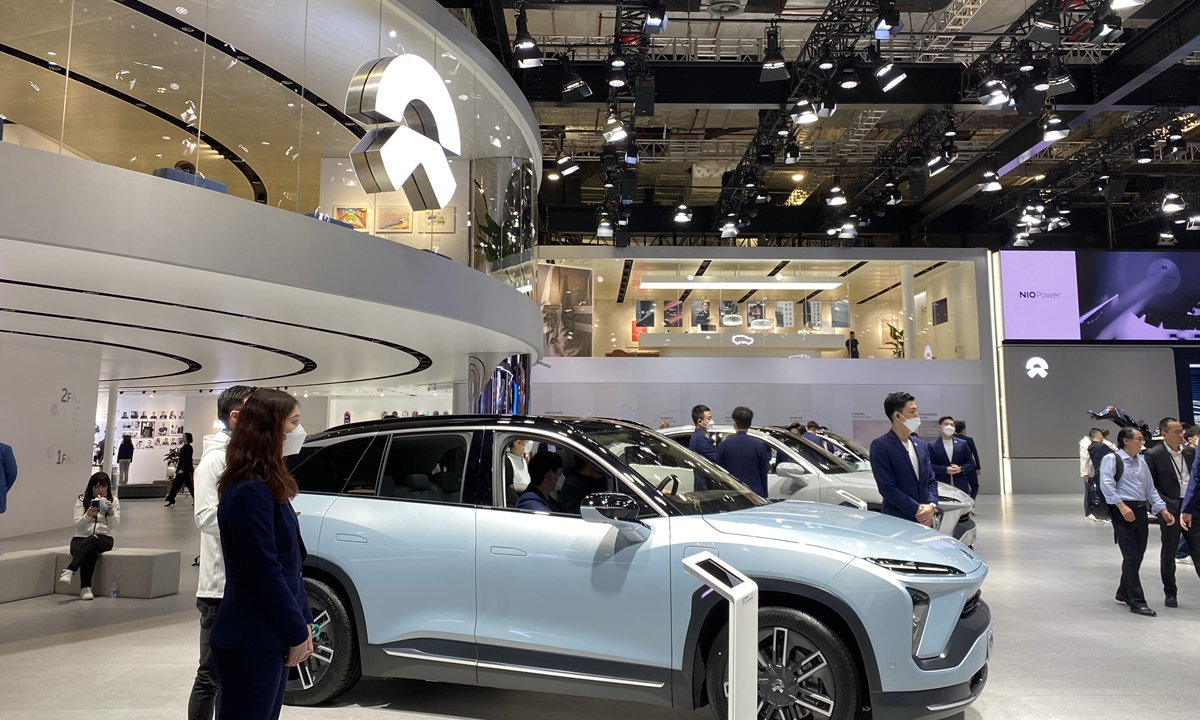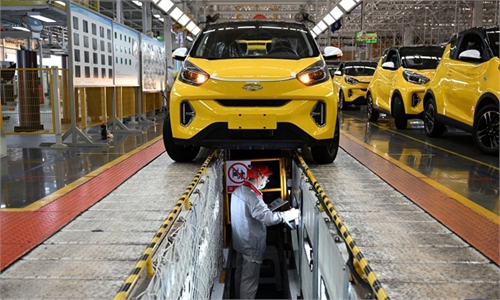
The Nio booth at the 19th International Automobile Industry Exhibition (Auto Shanghai 2021) on Tuesday Photo: Xie Jun/GT
The China Association of Automobile Manufacturers (CAAM) released a plan over the weekend, calling for joint efforts to build up an open-source automotive operative system in the world’s largest auto market.
The release of the plan marked China’s auto industry, aiming to take lead in the intelligent vehicle sector, has embraced further opening-up.
Fu Bingfeng, executive vice chairman and secretary general of CAAM, said that the rapid development of technology and industrial ecosystem have pushed up demand for an open-source operating system, the kernel of which could support both the software and hardware in a synergized way.
“As the world’s largest intelligent vehicle market, we have the responsibility to build up an open-source kernel based systematic plan with Chinese standards,” Fu said.
As the kernel research and development of operating system is a systematic project, which is a challenging task with a long cycle, Fu called for joint efforts including the government’s continuous support to forge integrated power and build up an industrial ecosystem.
China has been doubling down on the intelligent and connected vehicle sector, especially autonomous driving, over recent years, as it is expected to become one of the future growth engines of the wider economy.
Last year, the General Office of Shanghai Municipal People’s Government released a new plan for accelerating the development pace of intelligent cars, aiming to roughly build up an intelligent car development system that is domestically leading by 2025, with industry scale reaching 500 billion yuan ($72.9 billion).
The city officially opened the first group of expressways for autonomous driving in November last year after it opened more than 900 autonomous driving test roads offering test scenarios, ranking among the top in the country.
The rapid development of intelligent cars in China is believed to be inseparable from the rapid expansion of new-energy vehicle market in the country.
China sold about 6.89 million units of NEVs in 2022, skyrocketing 93.4 percent year-on-year. The market share of NEVs in China’s auto market reached 25.6 percent last year, up 12.1 percentage points from 2021, data from the CAAM showed.

